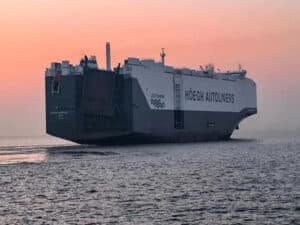
“FONAR” does not spell free pass for non-compliance with sulfur cap
Written by Nick Blenkey
Image: IMO
Another horrible new acronym has surfaced at the International Maritime Organization: FONAR. It stands for Fuel Oil Non-Availability Reports. And already, shipowner are being warned not to use a FONAR as a pretext to use or carry non-compliant fuel when the IMO cap on the sulfur content of marine fuels come into effect on January 1, 2020.
The term has emerged following last week’s meeting of IMO’s sub-committee on Pollution Prevention and Respons, which made “substantial progress” on preparations for the sulfur cap, according the Danish Maritime Authority.
IMO member states provisionally agreed a number of measures for consistent implementation and enforcement of the new rules that have now been forwarded to the IMO’s Marine Environment Protection Committee for completion in May this year.
The measures being finalized this year include guidelines for sampling of fuel oil on board ships and guidelines for consistent implementation including the use those Fuel Oil Non-Availability Reports (FONARs) from ships.
The International Chamber of Shipping notes that, in exceptional circumstances, safety or operational concerns about the quality of low sulfur fuels may be a valid reason for shipowners to be issued with a Fuel Oil Non Availability Report (FONAR)
However, ICS is warning shipowners that this decision should not be seen as a “free pass” either to use or carry non-complaint fuel.
“FONARs remain a tool of last resort and are not something that a ship will be able to use routinely” said ICS Deputy Secretary General Simon Bennett. “The circumstances in which a FONAR can be used are very limited and conditions attached to their use will be strict. Shipowners still need to remain focused on doing everything possible to ensure full compliance in 2020.”
ICS says it is possible that in some ports worldwide shipowners may initially encounter quality or compatibility problems with the new 0.5% blended fuels which they may have intended to use. But ICS emphasizies that the higher cost of alternative compliant fuels – including 0.1% distillates if these are the only other fuels available – will not be considered as a valid basis for claiming non-availability of safe and compliant fuel.
ICS is reminds ship operators of its recently updated guidance on ‘Compliance with the 2020 Global Sulfur Cap’ which states that ships will be expected to bunker and use other compliant fuels including 0.10% Smax distillates in cases where 0.50% Smax fuels are unavailable. Exceptions to this option may only be accepted by Port State Control (PSC) authorities following consideration of the ability of the ship’s fuel oil system to safely store, process and consume other compliant fuels and the need for cleaning out the tanks of all remaining fuel residue prior to loading non-compatible alternatives into the same tank. In such cases, ship operators must ensure the availability of documentary evidence on board to prove these limitations during subsequent PSC inspections following the issuance of any FONAR.
ICS also warns that only the minimum possible quantity of non-compliant fuel should be bunkered if a FONAR is issued, as it is likely that any remaining non-compliant fuel will be required by PSC to be debunkered at the next port of call, and cannot be used on subsequent voyages.
ICS says that a FONAR should not be considered as an exemption from the relevant sulfur limits. According to MARPOL, it is up to PSC authorities that receive the FONAR at the next port of call to take into account all relevant circumstances and the evidence presented to determine whether or not to detain the ship. PSC will also take into consideration the number of FONARs a ship has submitted in the past 12 months, as well as the number the operator has submitted for other ships in its fleet and whether other ships on similar voyages have submitted FONAR reports.
“Above all else, the onus will be on the ship operator to provide documentary evidence that every reasonable step has been taken to ensure compliant bunkers will be available in the planned bunkering port,” Bennett concluded.




